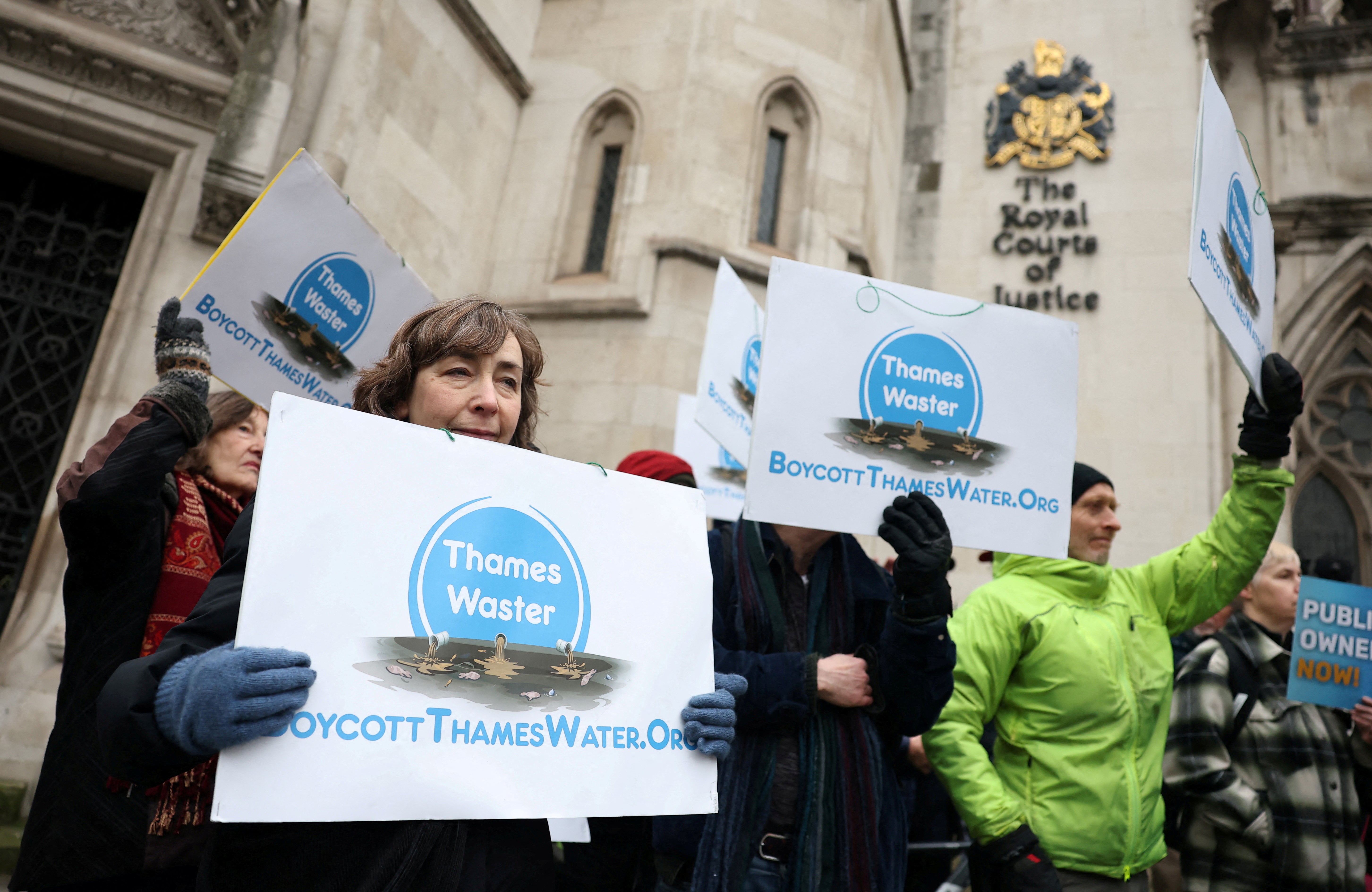Why taxpayers could still face a bill for Thames Water despite £3bn lifeline
A rescue deal has been approved by the High Court, but as Sean O’Grady explains, the crisis at the utility is far from over


Britain’s largest, and most indebted, private utility, Thames Water, has been in financial difficulties for some time and has now been given another reprieve by the High Court. A judge has approved the company borrowing a further £3bn but the prospects for the company remain uncertain. It is quite possible that, at some point, it will fail and have to be nationalised. What that entails for the government, and how much it will cost the taxpayer, are questions that have been intensively studied in Whitehall for some time. There will be political consequences.
Why go to court to take out a loan?
Normally, a company wouldn’t, but Thames Water is no ordinary concern. Loaded now with some £19bn of debt, its financial prospects are poor, and the loan is designed to give it some breathing space to arrange a more substantial financial reorganisation and to appeal to the regulator, Ofwat, and ultimately ministers to permit it to ramp up charges and limit needed investment. The plan is backed by one group of creditors, but another group challenged its validity and took the case to court. The opponents argued that the cost of the loan – 9.75 per cent interest – was said to be too high. The judge used his discretion he says, in the public interest to approve the loan.
Who would provide such a sum of money?
A lender who is prepared to take a risk for such a handsome return. The company has substantial physical assets and should, in normal circumstances, with sympathetic regulators and the right balance sheet, enjoy steady monopoly returns from captive consumers – one in four of the UK’s population and countless businesses are clients with no choice of an alternative supplier.
What happens if it goes bust?
In theory, there should be no interruption to water and sewage services because the company is covered by law under a bespoke insolvency arrangement, called the special administration regime. This was what was avoided by the court’s ruling and the £3bn raised – which was not opposed by Ofwat or the government. However, the government might choose, or be forced, pre-emptively to nationalise the company instead – which would mean taking on that terrifying £19bn of debt.
So will the taxpayer be lumbered with the debt?
It’s not that clear. We are entering, so to speak, uncharted waters. According to Ofwat: “The existence of the special administration regime also helps reduce the risk to taxpayers that they will have to bear costs relating to a failed company. This is because its purpose is to transfer a water company’s business to new owners rather than requiring the government to intervene to fund and run the business.”
But, with so much at stake, legal interventions could end up with a bill for the taxpayer.
Even if no debt needs to be taken on, under nationalisation, the government will still need to underwrite Thames Water’s normal activities, plus any emergency investment in, say, Coppermills, a major water treatment facility in northeast London. It serves some 3 million people and is reportedly in a “particularly alarming” state.
Who owns Thames Water?
Large foreign pension funds and institutions – the individual punters have long since gone. Major equity owners are the Ontario Municipal Employees Retirement System (32 per cent); the UK Universities Superannuation Scheme (20 per cent); the Abu Dhabi Investment Authority (10 per cent); and the China Investment Corporation (9 per cent).
Why is it in a mess?
Decades of underinvestment in the basically Victorian infrastructure, exacerbated by weak regulation, some neglect while it was under municipal administration and a substantial increase in the population of the capital and the South East. Privatisation in 1989 was designed to bring new investment, but it eventually ended up in the hands of Macquarie, an Australian private equity firm. Critics say it loaded the firm up with £10bn of fresh debt, which soon went out the door in fat dividends for the new owners. Macquarie says it was invested; it disposed of the company in 2017.
What will the political impact be?
A net negative for the Tories, probably. If the Treasury does end up having to pay off Thames’s debts, ministers will need to explain why they had to do that, although they will do everything to avoid such an outcome. Labour can justifiably claim that the 1989 privatisation by the Conservatives didn’t live up to expectations; the Tories can say Labour did nothing about the worsening situation during its time in office (1997 to 2010). Disgust at the state of the nation’s rivers and beaches rebounded badly on the Tories at the last general election, to the benefit of Labour, Liberal Democrats and the Greens, and that resentment continues. Higher water bills, already in the “pipeline”, will add to the cost of living crisis. Reform of Ofwat, to include financial health, looks inevitable.
Join our commenting forum
Join thought-provoking conversations, follow other Independent readers and see their replies
Comments